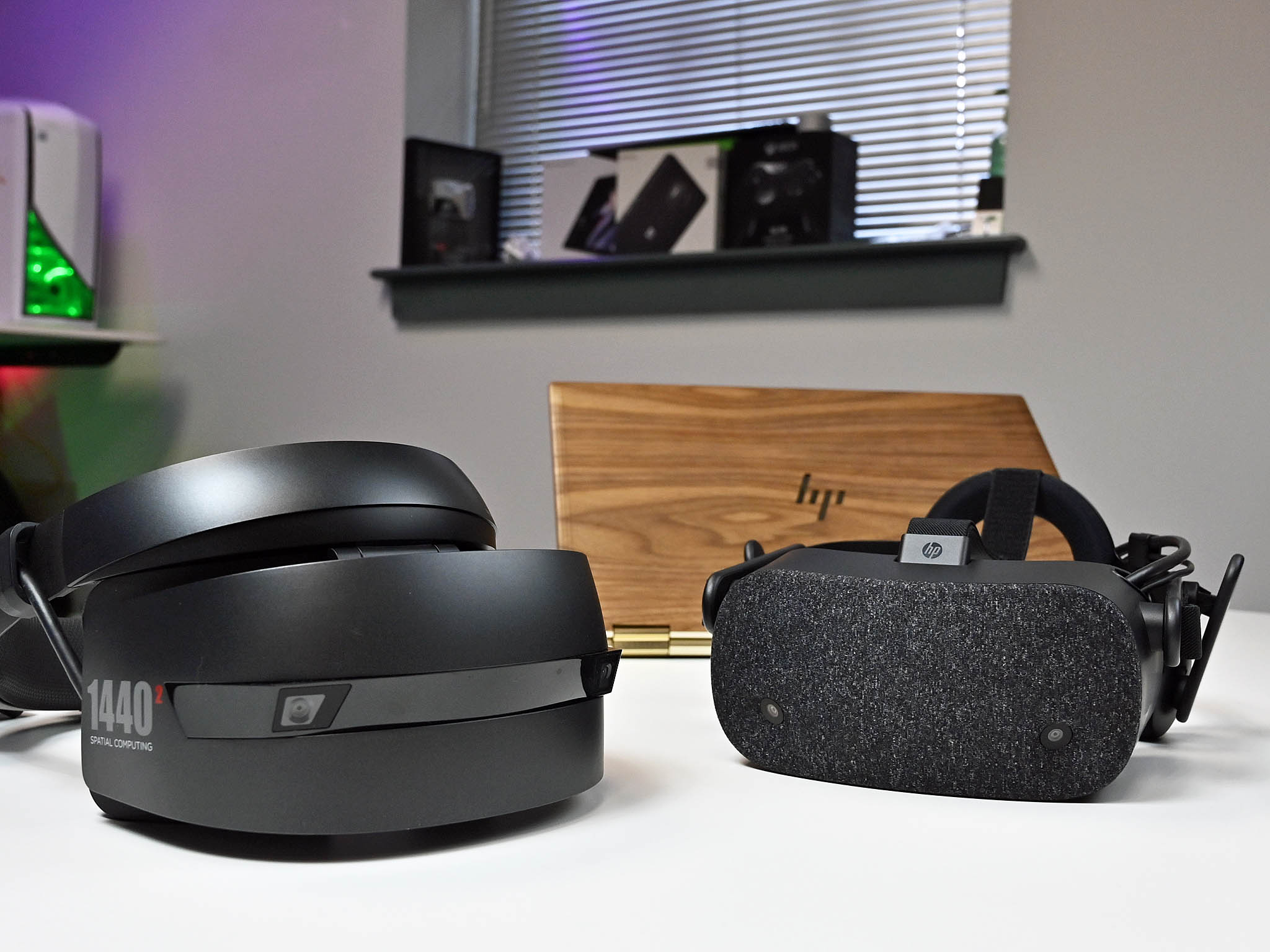Is Microsoft moving Windows Mixed Reality VR/AR towards consumers?
 Source: Windows Key
Source: Windows Key
Recently, Neb Stillwell of Xbox fame left the gaming segmentation to join Windows Mixed Reality, to work on "world-class consumer AR/VR experiences in the Microsoft ecosystem." Interesting.
For a couple of years, Microsoft couldn't resist demonstrating its unprecedented HoloLens augmented reality tech at every single event, it felt similar, using Minecraft and other random Xbox properties to showcase the potential therein. Fast forrard five years to 2022 and HoloLens remains firmly in the realm of large business and the military machine, powering next-generation training, awareness, and productivity solutions.
The only "games" on HoloLens remain more akin to modest abode projects and tech demos. Meanwhile, Microsoft's more than consumer-friendly Windows Mixed Reality headsets, affordably priced by comparison, have less than half a dozen decent games to choose from on the Microsoft Shop, which is truly bottomless. Thankfully they are uniform with SteamVR, but the experience isn't exactly what I'd call seamless.
Despite steadily trending up, VR hasn't exactly taken the world by tempest in the consumer infinite, but could that alter in the future? And is Microsoft running the gamble of existence left behind again? Let'south explore.
Country of VR
 Source: Bloomberg via Wikipedia
Source: Bloomberg via Wikipedia
Some estimates put the video game industry value anywhere between $120 to $150 billion, with VR solutions making upward around $6 billion of the overall pot in 2022.
In that location's little information virtually how much games like One-half-Life: Alyx might impact the landscape for VR, which launched just a few weeks ago as of writing. Information technology virtually immediately garnered tens of thousands of players on Steam and is more than than likely in the running for game of the year 2022 awards.
 Source: Windows CardinalHalf-Life: Alyx is arguably the best VR game to date.
Source: Windows CardinalHalf-Life: Alyx is arguably the best VR game to date.
For context, video game consoles make upwards around $15 billion in the same report, with PC gaming on $30 billion and mobile titles on a whopping $64 billion. While VR is small correct now, information technology seems to be growing relatively nicely according to analyses from Bloomberg, detailed in the graph above. VR is at to the lowest degree growing at a comparable rate to the early days of mobile and other platforms and is no doubt prepare to grow always further.
Fifty-fifty though the industry isn't massive right now, we're clearly seeing an industry trending upward year over yr, despite its cost-prohibitive nature and relative inaccessibility.
Could Microsoft change its attitude towards consumer VR?
 Source: MicrosoftNosotros've heard Microsoft Flight Simulator may come to VR.
Source: MicrosoftNosotros've heard Microsoft Flight Simulator may come to VR.
Nib Stillwell is known for running the Xbox backward compatibility program amongst Xbox fans, leading to the procurement of hundreds of loftier-quality Xbox 360 titles from yesteryear from third-party developers. Stillwell likewise led similar efforts over at Project Cloud, making me wonder if possibly his jump to AR/VR could take something to practise with bringing game developers to the platform.
Xbox Game Laissez passer has been a powerful vehicle for bringing game developers to the Microsoft Shop.
Indeed, Microsoft's Xbox Game Pass has been a powerful vehicle for bringing game developers to the Microsoft Store for PC games, which is shockingly condign a adequately respectable library of quality PC titles as of late. Not to oversimplify things, simply information technology stands to reason that a characteristic similar Xbox Game Pass for PC could too assist bulk up the Microsoft Store for VR titles besides, which correct at present only has some older (albeit brilliant) titles like Arizona Sunshine and Superhot VR. If Xbox Game Laissez passer PC subscribers take access to those games every bit a event of their subscription, it might increase interest in picking up an associated Windows Mixed Reality headset as well.
To that end, we've also heard that the impressive-looking upcoming flight sim Microsoft Flight Simulator may be in development for virtual reality every bit well. Information technology makes sense, given that it's a sit-down experience designed for immersion above all else. Flight simulation games similar Elite Unsafe were pioneers in the VR space, and it stands to reason that Flight Simulator could exist amongst the offset of Microsoft's homegrown VR efforts.
Should they swoop in earlier information technology's too late?
 Source: Windows Central
Source: Windows Central
In recent years, I've had this (admittedly unsubstantiated) thought that Microsoft has go almost afraid of taking risks in consumer tech, regressively sticking to safer paradigms. Burned by Kinect, Microsoft Band, Windows 10 Mobile, Cortana devices, and other products, information technology feels like Microsoft is taking a "softly, gently" approach to areas of consumer tech that it hasn't historically had involvement in.
Microsoft however has a gamble to become involved in consumer VR.
Microsoft has repeatedly affirmed that its efforts in VR remain firmly on PC for the time beingness, where the vast majority of the users are. Quality VR headsets are expensive, and to get the most out of them, you need a comparable gaming rig to match. Cheaper solutions like some of the lower-end Windows Mixed Reality headsets are attainable, but the feel is far beneath the more premium solutions out in that location. You take to wear these things afterwards all, and cheap headsets aren't merely uncomfortable, they can induce motion sickness more than easily.
I have mixed feelings about VR, given that it makes me feel ill, simply a lot of these sorts of issues are surely solvable with improved tech. Few companies out at that place take the technical prowess, engineering talent, and investment upper-case letter to advance this technology. Microsoft is amidst those companies. The longer it waits, the more than it easily consumer market share to shady companies like Facebook and its Oculus platform, while likewise giving PlayStation a pregnant differentiator in the panel space with its PSVR tech.
Microsoft has this staggeringly impressive capacity to underestimate nascent tech that really should be within its purview, could Windows Mixed Reality become the next missed gunkhole like Windows Telephone? Microsoft yet has a risk to get involved in consumer VR before information technology'south too belatedly.
Xbox
Primary
- What is Xbox Game Pass?
- Best 4K TVs for Xbox Series 10 and S
- Must-buy Xbox One Headsets
- Our Favorite Xbox One Wireless Headsets
- Best Upcoming Xbox Games for 2022
- Xbox One Ten vs. Xbox Series S

Shooty bang blindside
Where are all the guns in Dying Light ii?
It'southward by pattern, certain, but there's a distinct lack of firearms in Dying Light 2. For better or worse, modern medieval Villedor is a place to build your own weapons. But what happened to the guns and ammo and might information technology ever make a comeback?
Source: https://www.windowscentral.com/microsoft-moving-windows-mixed-reality-vrar-towards-consumers
Posted by: tathamferamplon.blogspot.com


0 Response to "Is Microsoft moving Windows Mixed Reality VR/AR towards consumers?"
Post a Comment